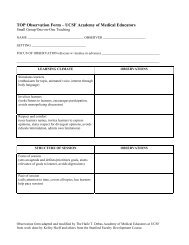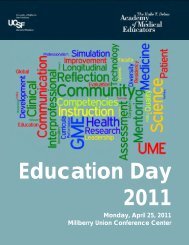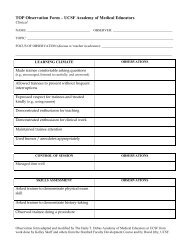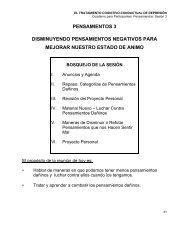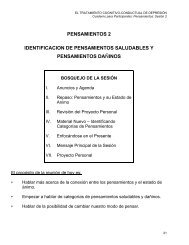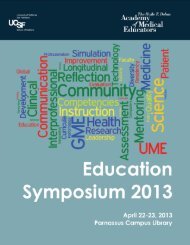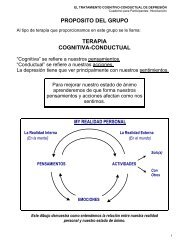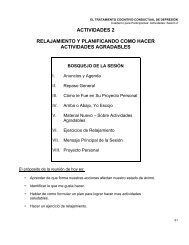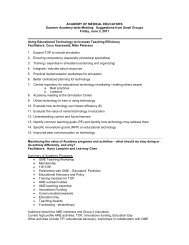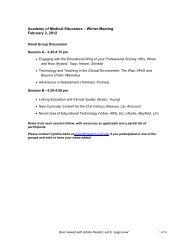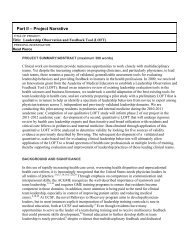The Healthy Management of Reality - Stanford University
The Healthy Management of Reality - Stanford University
The Healthy Management of Reality - Stanford University
You also want an ePaper? Increase the reach of your titles
YUMPU automatically turns print PDFs into web optimized ePapers that Google loves.
infinitude <strong>of</strong> thoughts and actions available to us, we can gain greater and greaterinfluence over our lives.Cycles: On the concept <strong>of</strong> reciprocal determinism.I first heard <strong>of</strong> the concept <strong>of</strong> reciprocal determinism from Albert Bandura’swork at <strong>Stanford</strong> <strong>University</strong>. He was trying to address the conundrum <strong>of</strong> how toretain a scientific approach to human behavior without proclaiming that ourbehavior is completely determined by our genetics and our learning history.Skinner had recently published his Beyond Freedom and Dignity, a radicalbehaviorist account which argued that the environment determines our behavior,and thus, that human acts are not free, and therefore do not earn us dignity.Psychoanalytic thought also had a similar deterministic bent to it, suggesting thatmany <strong>of</strong> the factors that mold our personality are not accessible by consciousthought. Later, genetic approaches to human behavior would also imply that much<strong>of</strong> what we do is determined by our heredity.<strong>The</strong> concept <strong>of</strong> reciprocal determinism acknowledges that our environmentdoes have an influence on us. It teaches us certain types <strong>of</strong> thinking and behavior.In that sense, our environment does determine much <strong>of</strong> what we do. <strong>The</strong> simplestexample is language: We speak the language <strong>of</strong> the people who raise us. You cantake a baby with any genetic loading and, by adopting him into a specific culturalenvironment, you can completely determine the language that baby will eventuallyspeak. At the same time, individuals also influence their environment. As thatbaby grows, he or she could choose to study certain other languages, seek friendswho speak those languages, or travel to an area where those languages are spoken.<strong>The</strong> choices the individual makes will increase or decrease the chances that he orshe will speak other languages, or even continue to speak his or her native one.HMOR.July2005.Muñoz.doc 65



